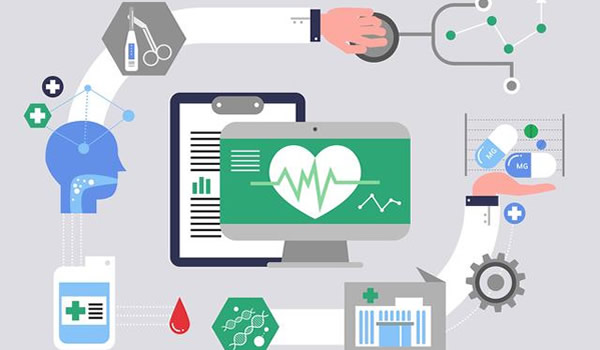Summary: The emergence of Artificial Intelligence (AI) in healthcare has revolutionized medical practices, enhancing patient care and medical research. dives deep into the role, scope, and impact of AI in healthcare.
Introduction
The integration of Artificial Intelligence into healthcare systems is an inevitable progression in today's digital age, significantly influencing not just Asia, but the global healthcare industry. It facilitates accurate diagnosis, personalized treatment, predictive analytics, and robust research, thereby transforming healthcare experiences and outcomes.

Artificial Intelligence: A Brief Overview
Artificial Intelligence refers to the use of algorithms and software to approximate human cognition in the analysis of complex medical data. It encompasses machine learning, where computer systems learn from data, identify patterns and make decisions, enabling healthcare professionals to gain unprecedented insights into diagnostics, care processes, treatment variability, and patient outcomes.
AI in Medical Diagnosis and Treatment
AI can assist in the accurate diagnosis of diseases by analysing electronic health records, medical images, and genetic data. It can predict potential health risks, personalize treatment plans, and monitor patient's health progress. AI has shown promise in areas such as radiology, pathology, dermatology, and even in the early detection of diseases like cancer.
AI and Public Health
Artificial Intelligence plays a significant role in public health management by predicting disease outbreak patterns, creating health policies, and managing resources during a health crisis. For example, during the Covid-19 pandemic, AI has been used in contact tracing, predicting outbreak hotspots, and analysing public sentiments towards vaccination.
AI, Clinical Research, and Safety Concerns
AI expedites clinical research through quick literature reviews, accurate data analysis, and predictions of clinical trial outcomes. However, the use of AI in healthcare also raises safety and ethical concerns. Issues relating to data privacy, consent, transparency, accountability, and bias in AI algorithms are crucial areas requiring rigorous discussion and regulation.
Future of AI in Healthcare
AI holds immense potential in healthcare, with continuous advancements promising to revolutionize all aspects of patient care and medical research. However, the key to effectively harnessing AI's capabilities lies in establishing robust regulations, developing technical expertise, promoting patient-centric applications, and ensuring ethical use of AI.
FAQs
1. How does AI contribute to patient care?
AI contributes to patient care by facilitating accurate diagnosis, predictive analytics, personalized treatment planning, and patient health monitoring.
2. What are the ethical issues associated with AI in healthcare?
Ethical issues include data privacy, informed consent, transparency, accountability, and potential bias in AI algorithms.
3. How is AI used in public health?
AI is used in predicting disease outbreak patterns, public health policy formulation, and managing resources during health crises.
Editor's Note
While AI is a powerful tool that holds immense promise in healthcare, its use must be regulated to ensure patient safety, privacy, and ethical practices. As a patient, it's important to stay informed and participate in decisions regarding the use of AI in your healthcare. As a healthcare professional, embracing this technological leap, while upholding ethical standards, can significantly enhance the quality of patient care and medical research.
User Comments
Johnson, Emily: gave me clarity on something my doctor mentioned.
Matthew Allen: I appreciate how the risks and treatments are clearly laid out.
Rodriguez, Ella: Finally found something reliable on this topic. Thank you!